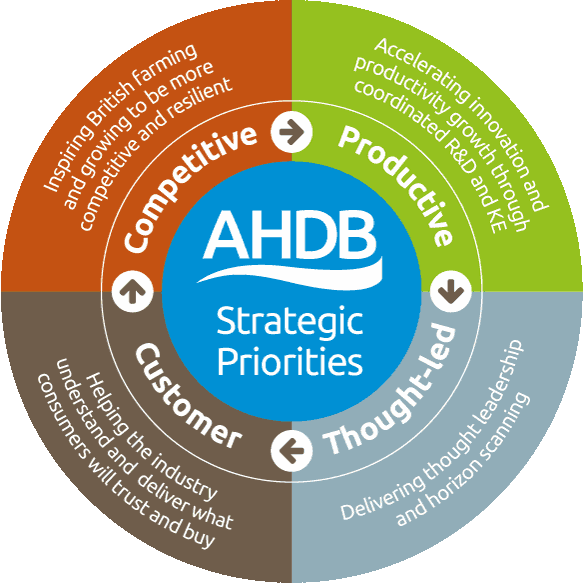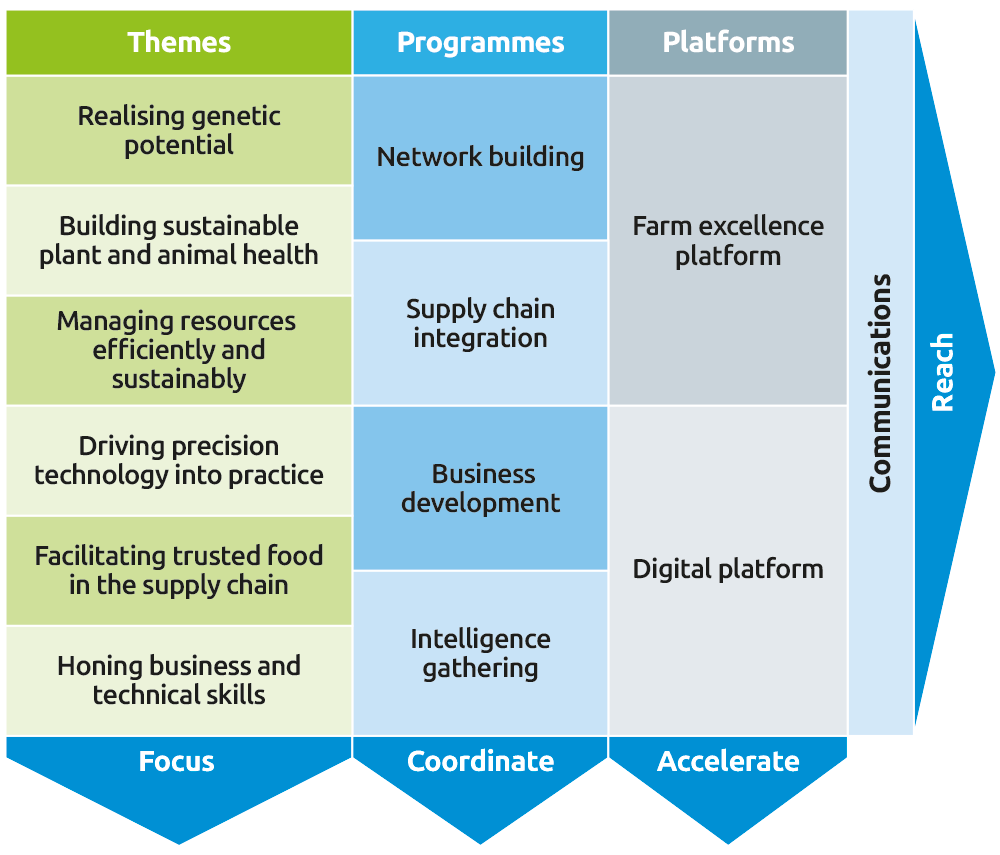Please click here to access the main AHDB website and other sectors.
- Home
- Research and knowledge exchange
Research and knowledge exchange
The AHDB three-year strategy, set out in the document AHDB Strategy 2017–2020: Inspiring success identified four high‑level strategic priorities to be delivered via sector‑specific activities.
The technical research and knowledge exchange components were delivered via work programmes grouped under six outcome-based themes (see the AHDB Research and Knowledge Exchange Framework opposite).


AHDB research and knowledge exchange framework
AHDB KE builds on the fact that we are unique in being able to blend farm economics and skills development with technical advances and innovation.
KE activities take the outputs arising from work done under the six themes and delivers them to the industry via four programmes that contribute to two delivery platforms.
Research and knowledge exchange themes
Theme 1: Realising genetic potential
| Turning data into genetic information by: | |
|---|---|
|
|
|
|
|
|
Theme 2: Building sustainable plant and animal health
| Improving knowledge exchange and practice by: | |
|---|---|
|
|
|
|
|
|
|
|
Theme 3: Managing resources efficiently and sustainably
| Becoming more competitive and sustainable by: | |
|---|---|
|
|
|
|
|
|
|
|
|
|
Theme 4: Driving precision technology into practice
| Independent, evidence-based information and evaluation of tools and technology by: | |
|---|---|
|
|
|
|
|
|
|
|
Theme 5: Facilitating trusted food in the supply chain
| Understand and deliver what customers will buy by: | |
|---|---|
|
|
|
|
|
|
|
|
Theme 6: Honing business and technical skills
| Improve and grow businesses and build the agriculture and horticulture industry profile by: | |
|---|---|
|
|
|
|
|
|
|
|
Knowledge exchange: Programmes
KE Programme 1: Network building
| Achieving more by working together by: |
|---|
|
KE programme 2: Supply chain integration
| Building connectivity through supply chains to improve marketability by: |
|---|
|
KE programme 3: Business development
| Developing an industry fit for the future by: |
|---|
|
KE programme 4: Intelligence gathering
| Listening, learning and sharing by: |
|---|
|

